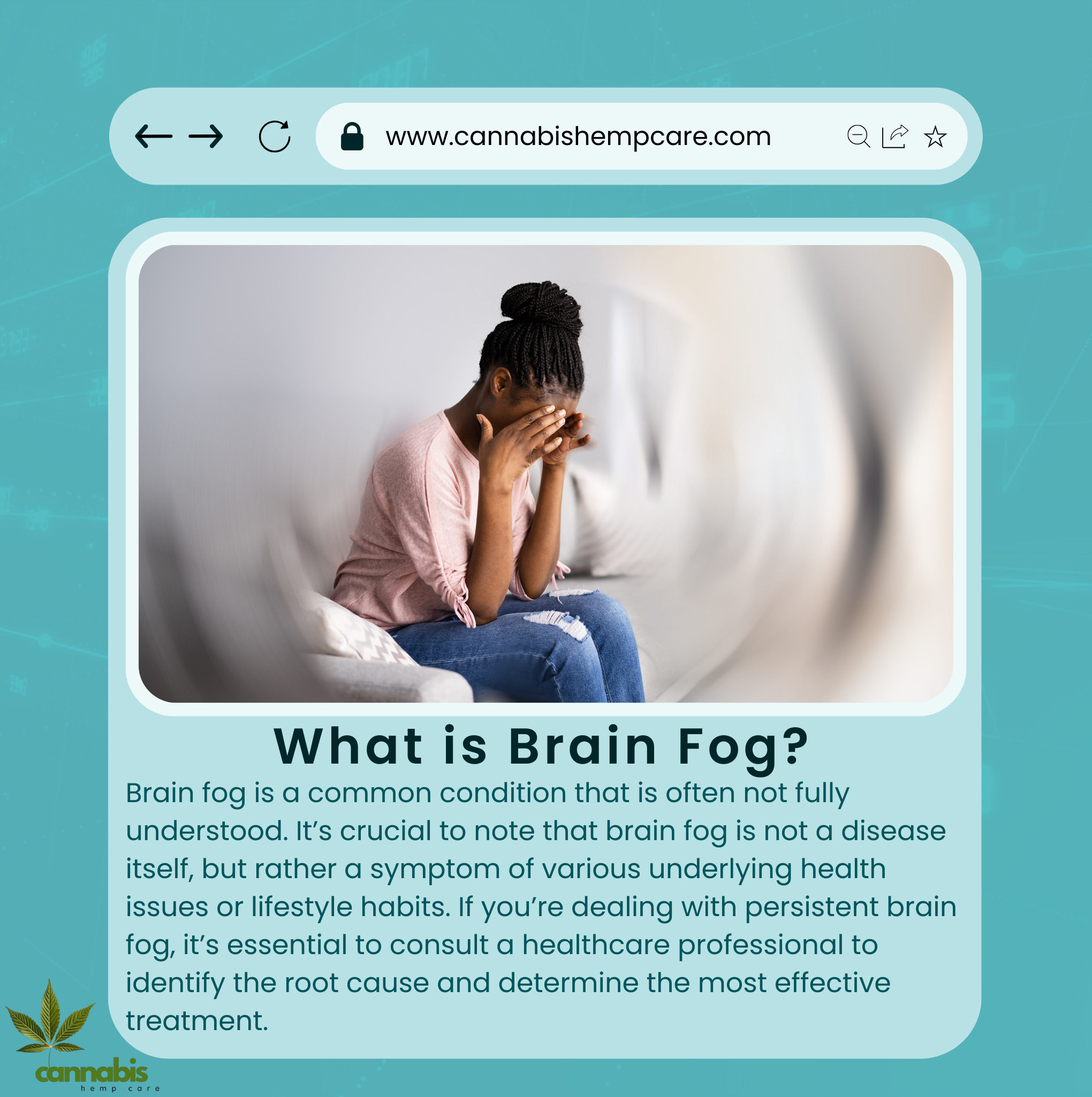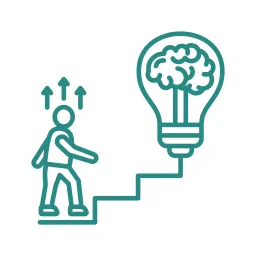Brain fog, sometimes referred to as mental fog, is a phrase that encompasses various cognitive symptoms affecting one’s thinking abilities.1 It’s not an official medical term but rather a general descriptor for problems related to cognition and memory.
What Is Brain Fog?
Brain fog is when one experiences feelings of confusion, forgetfulness, a lack of focus, and a sense of mental clarity. This condition can be triggered by certain environmental factors, such as stress or lack of sleep;2 it could be a symptom of a deeper health issue, or it could be a side effect of certain medications.

Causes Of Brain Fog
Brain fog can be triggered by several environmental factors, such as stress, insufficient sleep, standing for extended periods, poor diet (for instance, deficiency in vitamin B12), and hormonal changes in the body, like menopause.
Additionally, brain fog can be a symptom of various health conditions. Here are some examples:
- Myalgic encephalomyelitis or chronic fatigue syndrome (ME/CFS) is linked with continuous and often debilitating fatigue, unrefreshing sleep, and cognitive issues.
- Fibromyalgia results in widespread muscle pain and can also lead to mood, sleep, and cognitive problems.
- Viral infections like COVID-19 or HIV can lead to mental fatigue and a range of cognitive disturbances.
- Postural orthostatic tachycardia syndrome (POTS) leads to dizziness and light-headedness when standing up, with fatigue and cognitive problems as additional symptoms.
- Autoimmune diseases, where the body’s immune system mistakenly attacks healthy tissue, can cause brain fog. It’s commonly reported in people with conditions like multiple sclerosis, Celiac disease, Hashimoto’s disease (a leading cause of hypothyroidism), Lupus, Rheumatoid arthritis, and Sjögren’s syndrome.
Some Common Causes Of Brain Fog
- Stress: Persistent stress can lead to an increase in blood pressure, a weakened immune system, and the onset of depression. It can also result in mental exhaustion, which can cause brain fog.
- Sleep Deprivation: Insufficient sleep can disrupt the functioning of your brain. Quality sleep is crucial for cognitive functions like memory, learning, and problem-solving.
- Hormonal Changes: Fluctuations in hormones can also induce brain fog. During pregnancy, the levels of progesterone and estrogen rise, which can impact memory and lead to temporary cognitive impairment. Similarly, a decrease in estrogen during menopause can result in forgetfulness, poor concentration, and unclear thinking.
- Diet: Certain dietary choices or deficiencies can contribute to brain fog. For instance, Vitamin B-12 is essential for a healthy brain, and its deficiency can cause brain fog. Consuming excessive caffeine can cause dehydration, another potential cause of brain fog.
- Medications: Some medications can also lead to brain fog. If you suspect that your medication is causing brain fog, it’s important to discuss this with your doctor. Do not discontinue any medication without consulting a healthcare professional.
- Underlying Health Conditions: Brain fog is a common symptom of several conditions such as fibromyalgia, chronic fatigue syndrome (CFS), anemia, depression, diabetes, hypothyroidism, autoimmune diseases like lupus, and neurological disorders like Alzheimer’s disease and multiple sclerosis (MS).

Treatment For Brain Fog
The approach to treating brain fog is mainly dependent on its root cause. For less severe cases, self-care measures can be beneficial. These include ensuring sufficient sleep, managing stress through yoga and meditation, reducing alcohol and caffeine intake, and adhering to a nutritious, balanced diet.
Suppose brain fog is frequently hindering your daily activities. In that case, if self-care methods are not alleviating the brain fog or if your memory is deteriorating, it’s crucial to consult a doctor.
In some instances, addressing any underlying nutritional deficiencies that might be causing the symptoms could be helpful. Vitamins commonly linked with brain fog and overall brain health include vitamin D, omega-3s, magnesium, vitamin C, vitamin B complex, and zinc.
If you’re experiencing brain fog while on medication, it’s important to discuss this with your doctor. Brain fog could be a known side effect of certain medications. Adjusting your dosage or switching to a different medication might alleviate your symptoms.
Symptoms
Brain fog manifests through several cognitive symptoms, including:
- Difficulty in thinking or focusing: Concentrating or staying on task may become challenging.
- Trouble with finding the right words or understanding others: Expressing oneself or comprehending conversations might be a struggle.
- Forgetfulness or short-term memory loss: There may be an increased frequency of forgetting things.
- Problems with multitasking, planning, and organizing: Tasks requiring these skills might seem more difficult than usual.
- Feeling mentally “cloudy,” “spacey,” or “fuzzy”: There might be a sensation of a cloud obstructing clear thinking.
- Easily distracted or disoriented: Focusing might be hard, and there might be increased confusion or disorientation.
Medications That Can Cause Brain Fog
Several medications can cause brain fog as a side effect. These include:
- Antidepressants: Certain antidepressants can disrupt cognitive function.3
- Anti-anxiety medications: These drugs can also result in brain fog.4
- Anti-seizure medications: Some of these medications can cause cognitive impairment.
- Opioid analgesics: These pain relievers can induce brain fog.
- Sleep aids: Many over-the-counter sleep aids contain diphenhydramine, an antihistamine with anticholinergic effects, which can lead to brain fog.5

How Brain Fog Feels
Experiencing brain fog can be likened to having a cloud obscuring your mind. You may experience the following:
- Confusion or disorientation: You may struggle to remember your location or the current date.
- Forgetfulness: Common details such as names, dates, or recent activities might slip your mind.
- Difficulty focusing or concentrating: Paying attention to anything for an extended period might be challenging.
- Slow or unclear thinking: Your thoughts may not form as swiftly as usual, or they may seem indistinct or vague.
- Trouble processing information: Understanding new information may take more time than it typically would.
These feelings can be frustrating and may interrupt your daily life. However, it’s crucial to remember that brain fog is a symptom, not a disease in itself, and it can be managed with the right strategies. If you’re dealing with persistent brain fog, it’s important to seek advice from a healthcare professional to identify the underlying cause and determine the appropriate treatment.

Conclusion
Brain fog is a common condition that is often not fully understood. It’s crucial to note that brain fog is not a disease itself, but rather a symptom of various underlying health issues or lifestyle habits. If you’re dealing with persistent brain fog, it’s essential to consult a healthcare professional to identify the root cause and determine the most effective treatment. Remember, you’re not alone in this, and there are numerous resources and treatments available to help you manage this condition.
FAQ’s
Sources
- “Brain Fog: Symptoms, Causes, Diagnosis, and Treatment.” Verywell Health, www.verywellhealth.com/brain-fog-7090619. Accessed 4 Nov. 2023. ↩︎
- Higuera, Valencia. “6 Possible Causes of Brain Fog.” Healthline, Healthline Media, 14 June 2017, www.healthline.com/health/brain-fog. Accessed 4 Nov. 2023. ↩︎
- Medication Side Effects: Drugs That Cause Brain Fog. 31 Aug. 2022, www.neurosection9.com/medication-side-effects/. Accessed 4 Nov. 2023. ↩︎
- “Brain Fog: 5 Potential Causes and How to Treat It.” Forbes, 27 Sept. 2023, www.forbes.com/health/mind/brain-fog/. Accessed 4 Nov. 2023. ↩︎
- Solan, Matthew. “Stuck in a Brain Fog? Look in Your Medicine Cabinet.” Harvard Health, 1 Oct. 2021, www.health.harvard.edu/mind-and-mood/stuck-in-a-brain-fog-look-in-your-medicine-cabinet. Accessed 4 Nov. 2023. ↩︎




































